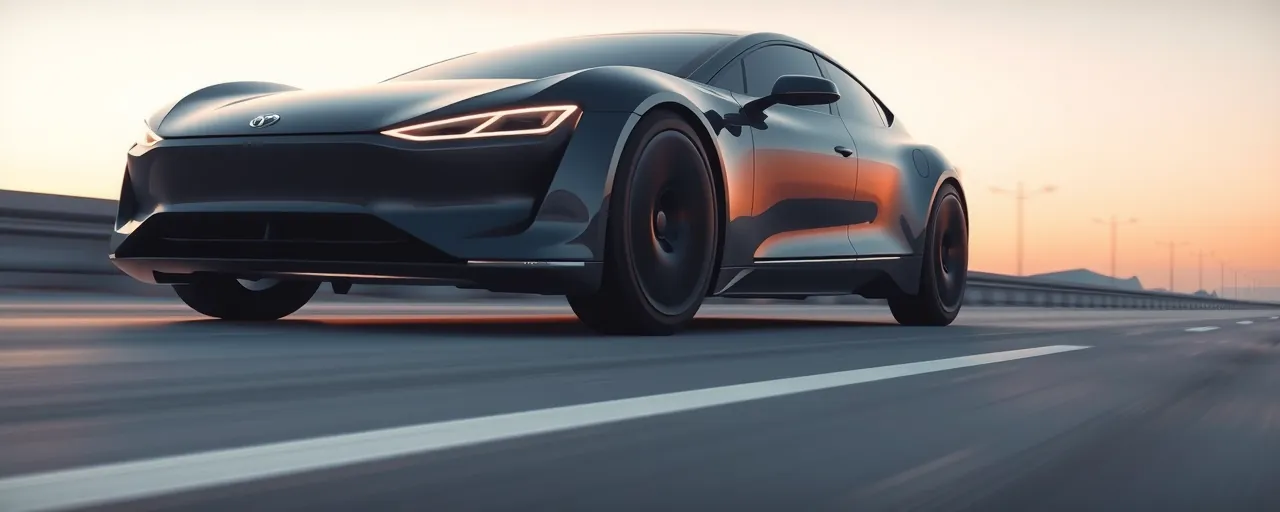Standing Up for Our Air
Clean air is a right, not a privilege. It fuels our health, our children’s dreams, and our planet’s hope. Yet, in 2025, the federal government is trying to suffocate that hope by attacking state-led clean vehicle programs. Eleven governors, from California to Rhode Island, have united under the Affordable Clean Cars Coalition to defend their authority to deliver cleaner cars and healthier communities. This isn’t just policy—it’s a promise to families who want to breathe freely and save money.
Leaders like New Jersey’s Phil Murphy and New York’s Kathy Hochul are pushing back against congressional and Trump administration moves to gut EV incentives and state standards. Their fight is for people—workers in auto plants, parents in polluted neighborhoods, and kids who deserve a future free from smog.
Why does this matter so much? Clean vehicle programs have already saved thousands of lives by cutting toxic emissions. They’ve slashed healthcare costs by billions. Can we really let narrow political interests undo this progress?
Federal efforts to kill California’s 2035 gas-car sales ban and strip away the $7,500 EV tax credit aim to raise costs for drivers and stall innovation. These actions favor polluters over families, ignoring the booming global demand for clean cars and the economic gains of a greener auto industry.
The governors’ coalition offers a brighter path. By strengthening state-led solutions, they’re ensuring Americans can afford cleaner vehicles while protecting public health and the environment. This battle is about securing a sustainable future for everyone.
States Lead Where Washington Falters
Since 1966, California’s Clean Air Act authority has driven cleaner air nationwide, with eighteen states adopting its tough vehicle standards. These rules have cut tens of thousands of tons of harmful pollutants yearly, preventing deaths and easing asthma burdens. A 2025 estimate pegs public health savings from these programs at over $1 billion. That’s not abstract—it’s fewer hospital visits, healthier kids, and longer lives.
The Affordable Clean Cars Coalition carries this torch forward. Governors like Maryland’s Wes Moore and Oregon’s Tina Kotek are teaming up to make EVs affordable with rebates, broader charging networks, and partnerships with automakers and unions. Their aim is clear: let every American, from rural Colorado to urban Massachusetts, choose a cleaner car without financial strain.
These state efforts also fuel jobs. With over 100 EV models now available, driven by state standards and incentives, the U.S. auto industry is thriving. Clean car sales have quadrupled since 2020, saving drivers about $1,200 a year on fuel. Why would anyone want to derail this economic and environmental win?
Some in Congress, like Senator John Barrasso, claim these programs restrict choice and inflate vehicle costs. They paint EVs as a luxury for the wealthy. But reality tells a different story: federal and state incentives have made EVs accessible across incomes, and point-of-sale rebates have spiked sales. These programs offer options—gas, hybrid, or electric—while locking us into gas-only vehicles would trap us in a costlier, dirtier past.
Infrastructure is another focus. Public chargers are more common now, but coalition states are working to bridge gaps, especially in underserved areas. California hosts 29 percent of U.S. chargers, yet states like Delaware and New Mexico are investing to ensure fair access. This work empowers drivers to choose EVs with confidence.
States have long been America’s testing ground for bold ideas. A 2025 Nature Communications study finds that 23 climate-focused states could cut national emissions by 46 percent through strategies like electrification and clean fuels. These governors show that local innovation thrives when Washington hesitates.
Federal Rollbacks Hurt Us All
The Trump administration and congressional Republicans are working to dismantle state Clean Air Act powers, arguing they overstep and burden consumers. They’ve targeted California’s waiver, cut EV tax credits, and delayed federal charger funds. But their reasoning doesn’t hold up. Undoing clean vehicle programs raises costs—for fuel, healthcare, and road repairs, as heavier EVs demand new funding like vehicle miles traveled fees.
Their claim that EVs kill jobs is baseless. Manufacturers like Ford and Honda support state standards, which spark innovation and global competitiveness. Clean vehicle programs have created jobs in charger installation and battery production. Weakening them risks handing leadership to China and Europe, where clean car markets are soaring.
What’s at stake if we let these rollbacks succeed? By 2050, 100 percent zero-emission vehicle sales could save nearly $1 trillion in health costs and prevent millions of illnesses. Federal interference puts this future at risk, favoring fossil fuel profits over families’ well-being. The governors’ coalition is fighting back with lawsuits and collaboration, proving states can lead when Washington falters.
Building a Cleaner, Fairer Future
The Affordable Clean Cars Coalition is about action, not just defense. By sharing strategies, engaging communities, and exploring tougher standards, these governors are making clean vehicles accessible to all. Their efforts build on decades of state leadership, from California’s early smog rules to the 2013 multi-state EV commitment that brought millions of clean cars to our roads.
This fight is deeply personal. It’s for parents who want their children to grow up healthy, workers who need stable jobs in a shifting economy, and communities that demand a voice in their future. The coalition’s focus on equity—more chargers in underserved areas, lower EV costs—shows clean transportation can lift everyone up.
We can’t let federal attacks dim this vision. The governors’ resolve is a rallying cry: back state innovation, fight for clean air, and build a future where every American can drive toward a healthier, more affordable tomorrow. Let’s stand with them to protect our air and our planet.
